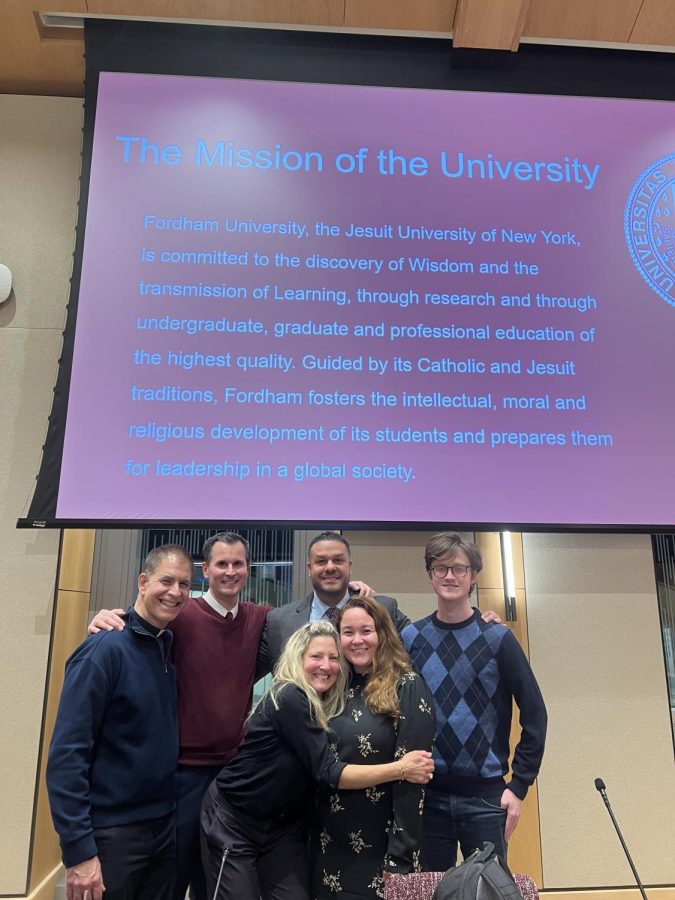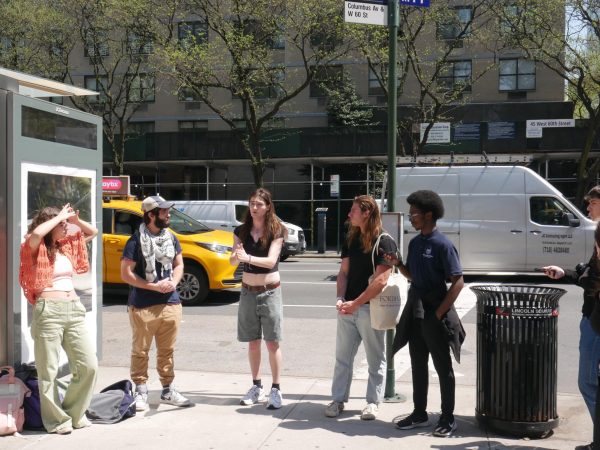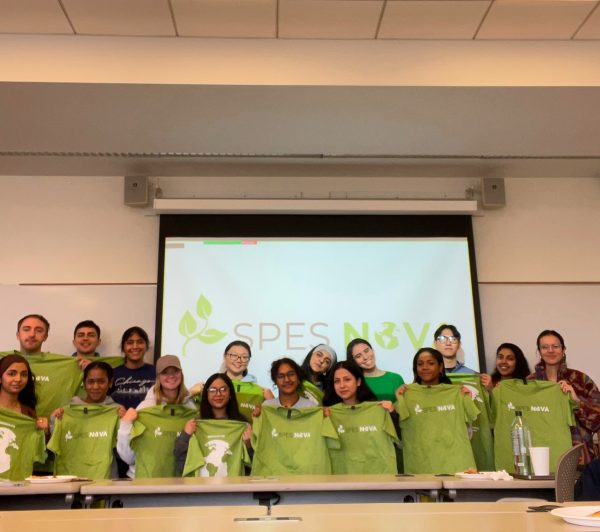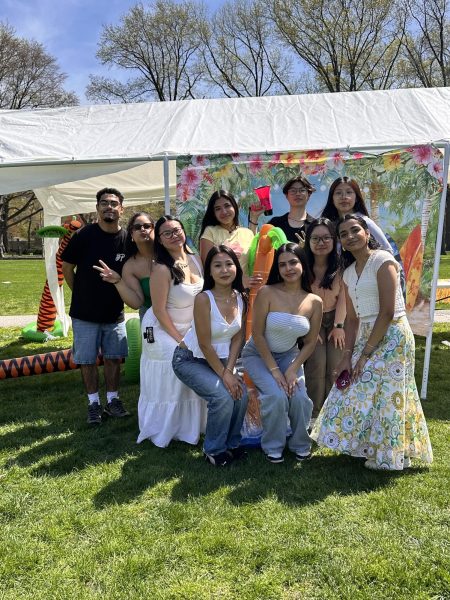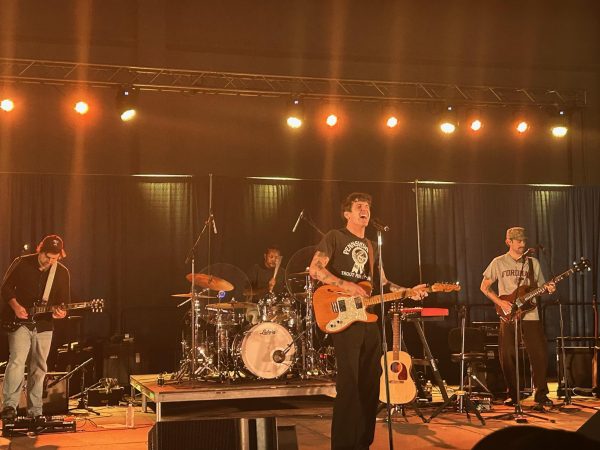Fordham Hosts “Living the Mission Event”
On Nov. 16, the Division of Mission Integration and Ministry hosted a panel titled “Living the Mission.” The event was organized by Robert Parmach, director of Ignatian mission initiatives, and Vanessa Rotondo, associate director of campus engagement and senior advisor for Ignatian leadership. The panel was moderated by Fr. John Cecero, vice president for mission integration and ministry. The panel’s purpose was to have the event’s attendees dig deeper into Fordham’s mission, inspire each other as a call to action and become reaffirmed in the Jesuit identity. Parmach noted that the event was not a lecture, rather, a presentation and a space for conversation among friends. There were three panelists: Dr. Renaldo Alba, associate director of STEP/CSTEP, Benedict Reilly, FCRH ’23, and Angela Flynn, officer manager in the Office for Student Involvement at Rose Hill.
The panelists began by addressing the first question: “What strikes you about Fordham’s mission statement?” Flynn began the conversation, sharing that Fordham students’ yearning for knowledge stands out to her.
“My whole experience in all of my classes has just been so fulfilling for me … it taught me a lot about knowledge being a burden. When you know something, there’s decisions to make. I wanted to know more, even if it complicates life,” said Flynn.
For Reilly, the Jesuit aspect of Fordham’s mission statement spoke to him the most. He reflected on the story of St. Ignatius, specifically, how his life was transformed after he was struck by a cannonball. Reilly analyzed three main elements of Ignatius’ narrative: the source of the cannonball, the cannonball’s impact and Ignatius’ recovery and life afterwards. Reflecting on Ignatius’s recovery after he was struck, Reilly invited the audience to consider God’s role in everyday life. Reilly reminded the audience that God was truly at work throughout Ignatius’s life, however, just because God is at work doesn’t mean that we should live independently from him.
“When we’re thinking about the mission and integration, these 85 acres are not the boundaries of this mission,” said Reilly.
Alba reiterated the importance of looking for God in all things. An aspect of the mission statement that most profoundly resonated with him was the fostering of intellectual, moral and religious development.
“Living the mission and fostering this moral intellect strikes me. A lot of [the service work] that I’m engaged in, I get a lot out of it and it helps me become a better person,” said Alba.
On par with Reilly’s discussion of Ignatius’ cannonball, Alba discussed his own “cannonball moment” when he traveled to the Dominican Republic after graduating from high school. While in the Dominican Republic, Alba began to recognize what privilege looked like as well as the separation between groups of people.
Adding on to Flynn’s ascription of knowledge as a burden, Alba noted that, in college, he began asking himself difficult questions:
“I was burdened by what I saw, and I felt like I needed to do something.” Alba concluded by stating that, although he hasn’t been able to find a concludable answer to his questions, he’s beginning to accept that not every question has an answer.
“It’s now 20 years after undergrad that I’m starting to sort of understand what it means to let go and let God,” said Alba.
Audience members were directed to take a few minutes of silence for individual reflection. Attendees were presented with the question “What three takeaways from the panelists resonate with your Fordham experience?”
Cecero noted that a recurrent idea throughout the panel was the idea that God meets us where we are. According to Cecero, often, people think conversion looks like Ignatius being struck by a cannonball; however, sometimes conversion happens in the gentle awakening of an interest or desire. Cecero recited a quote from Ignatius: “Love ought to show itself in deeds more than in words.”
According to Cecero, the panelists are an embodiment of the quote.
“[The panelists] are passionate about what they believe in, and that’s where love is most eloquently expressed,” Cecero concluded.
Students were encouraged to share their thoughts and takeaways from the panel. Many students discussed the uniqueness of Fordham’s community, referring to Fordham as “a family.” A few students had worked with the panelists, and they expressed their gratitude for the impact they’ve had on their Fordham experience. The event concluded with table discussions where students were encouraged to become acquaintanced with those around them and discuss their thoughts on the panel and how they can live Fordham’s mission.
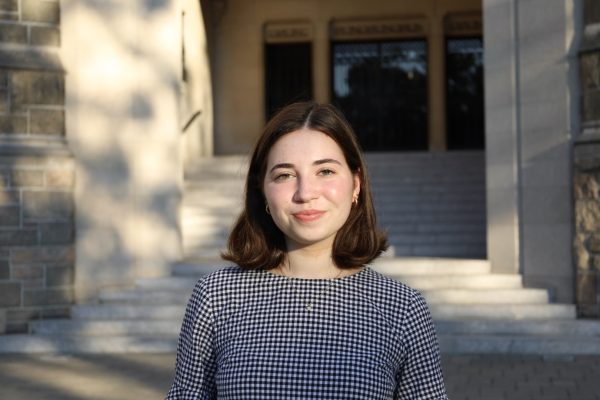
Sofia Donohue is a senior from Kensington, Md., who is majoring in English with a double minor in history and Italian. She first joined the Ram as a digital...



































































































































































































